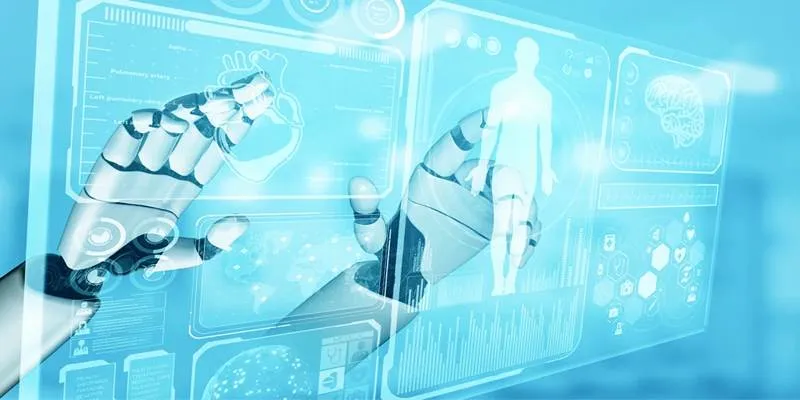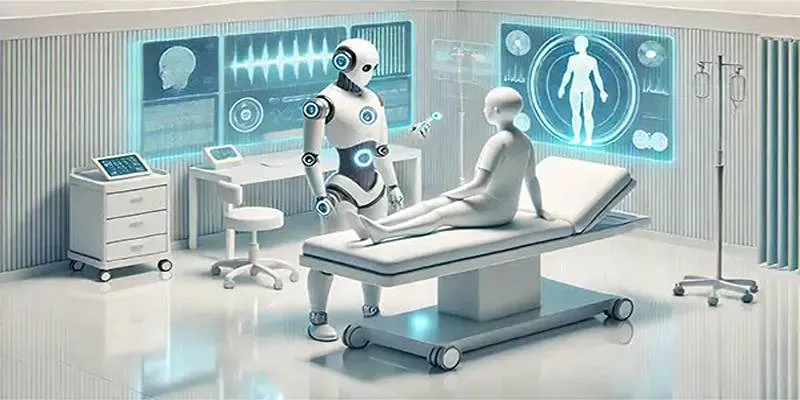New technologies are transforming the healthcare industry, with artificial intelligence (AI) at the forefront of these changes. AI is revolutionizing hospital management by offering innovative solutions for improved patient care and efficient business operations.
AI is reshaping healthcare facilities by streamlining administrative tasks and personalizing medical care. In this article, we’ll explore how AI is enhancing hospital management , focusing on its role in optimizing hospital operations, improving patient care, and boosting overall healthcare system efficiency.
How AI is Optimizing Hospital Operations
Managing a hospital is a complex and fast-paced task, making operational efficiency crucial. AI plays a key role in automating routine administrative tasks, enhancing operational flow, and optimizing resource utilization.
Automating Administrative Tasks
Hospital staff dedicate significant time to administrative duties such as scheduling, data entry, and patient management. AI tools help automate these repetitive tasks, freeing healthcare professionals to focus on patient care.
- Scheduling: AI-driven systems optimize staff schedules by considering patient volume, staff availability, and historical data, ensuring hospitals are adequately staffed during peak hours without overstaffing during quieter times.
- Data Entry and Record Management: AI tools automate patient information entry, reducing human errors and improving medical records’ accuracy.
- Billing and Coding: AI systems automate diagnosis and procedure coding for insurance claims, ensuring compliance and expediting the billing process.
Predictive Analytics for Resource Management

Hospitals must effectively manage resources like equipment, staff, and medications. AI systems predict resource demand by analyzing historical data and patient trends.
- Staffing: AI predicts busy departments, allowing hospitals to adjust staffing accordingly.
- Equipment Allocation: AI tracks equipment usage and predicts demand, helping avoid shortages and ensuring high-value resources are readily available.
Improving Patient Care Through AI
Beyond operations, AI significantly impacts patient care by analyzing large volumes of medical data, assisting healthcare professionals in accurate diagnoses and developing personalized treatment plans.
Personalized Treatment Plans
AI enables doctors to create personalized treatment plans by analyzing a patient’s medical history, genetic data, lifestyle, and other relevant factors. This data-driven approach tailors treatments to individual needs, improving success rates and reducing adverse reactions.
- Genetic Data Analysis: AI analyzes genetic data to identify disease predispositions, allowing doctors to recommend preventative measures or customized treatments.
- Data Integration: AI integrates data from various sources like medical records, diagnostic tests, and wearable devices, providing doctors a holistic view of the patient’s health.
Early Detection and Diagnosis
Early diagnosis is crucial for improving patient outcomes, and AI plays a vital role in early disease detection. AI-powered tools analyze medical images, lab results, and patient data to identify patterns human doctors might miss.
- Medical Imaging: AI demonstrates high accuracy in analyzing medical images like X-rays, MRIs, and CT scans, helping doctors identify conditions such as tumors and fractures earlier.
- Predictive Algorithms: AI uses predictive algorithms to foresee potential health risks, like heart attacks or strokes, based on a patient’s medical history and lifestyle factors, enabling timely intervention.
Enhanced Monitoring and Remote Care

AI-powered tools monitor patients remotely, especially those with chronic conditions, enabling healthcare providers to track health status in real-time. These tools alert healthcare professionals to changes in a patient’s condition, allowing for proactive care.
- Wearable Devices: AI-powered wearable devices continuously monitor vitals like heart rate and blood glucose levels, providing real-time health insights.
- Telemedicine: AI supports telemedicine solutions, enabling remote consultations and improving healthcare access for rural or mobility-challenged patients.
Enhancing Patient Experience Through AI
AI enhances the overall patient experience by streamlining communication, reducing wait times, and personalizing interactions, helping hospitals deliver a more positive patient experience.
Improved Communication
Effective communication is essential for quality care, and AI improves hospital communication with patients and staff.
- Virtual Assistants: AI-powered chatbots and virtual assistants handle patient inquiries, schedule appointments, and provide information, reducing administrative staff workload.
- Patient Portals: AI enhances patient portals, offering real-time access to medical records, lab results, and appointment schedules, empowering patients to manage their healthcare.
Reducing Wait Times
Long wait times are common hospital complaints. AI helps reduce wait times by optimizing patient flow.
- Smart Queue Management: AI systems analyze patient data and predict wait times, optimizing patient flow and reducing system bottlenecks.
- Real-Time Tracking: AI tracks patients’ progress through care stages, providing staff with real-time updates and ensuring timely interventions.
Conclusion
AI is revolutionizing hospital management by optimizing operations and improving patient care. By automating administrative tasks, enhancing diagnostic accuracy, and providing personalized treatments, AI enables hospitals to operate more efficiently while delivering higher-quality care. To fully harness AI’s potential, hospitals must address challenges like data security, staff training, and initial implementation costs.
 zfn9
zfn9




















